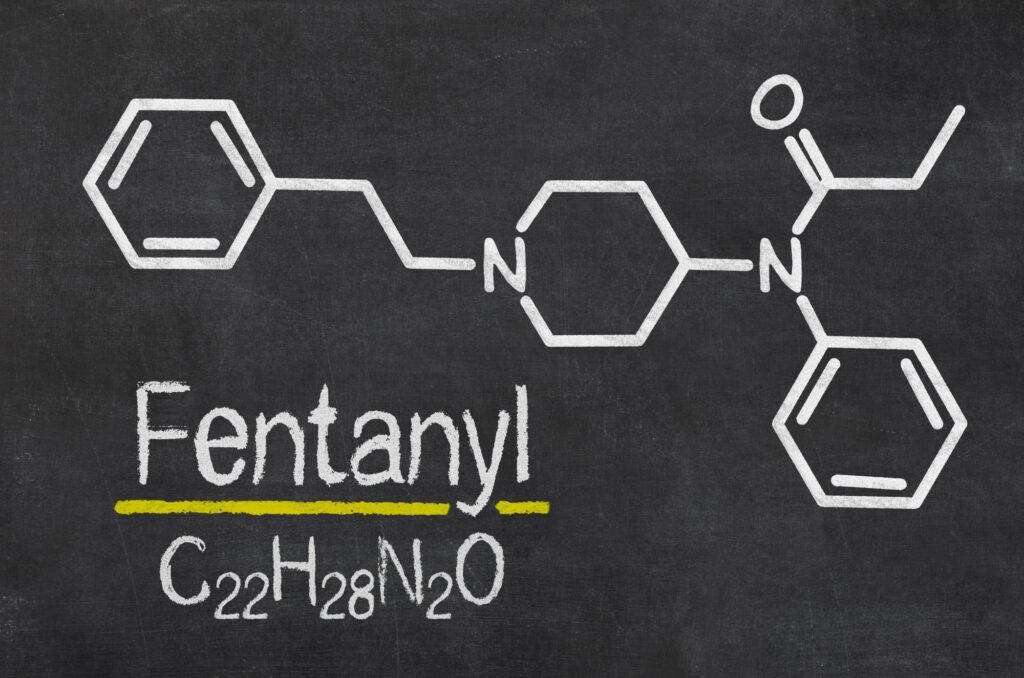In 2021, over 70,000 Americans died from Fentanyl overdoses. That’s up from around 56,000 in 2020. In short, Fentanyl is becoming an increasingly bigger problem in the United States, and its impact is a deadly one.
But what you might be wondering is: what’s driving Fentanyl overdose? And even more: what’s the solution to the problem?
We’re going to go into both of these questions below, helping you understand the specific dangers of Fentanyl and what you can do to stop them.
What Is Fentanyl?
To understand why Fentanyl is having such a huge negative impact, you must first understand what Fentanyl is. Fentanyl is a synthetic drug that was originally designed to treat extreme pain after surgery. It is an opioid, more specifically.
Fentanyl’s chemical structure can be adjusted slightly to supply different potencies. Whereas some offshoots of Fentanyl are as much as 100 times its potency, others pack less potency. That said, the vast majority of them have caused at least a handful of overdoses throughout the United States.
How Does Fentanyl Lead to Overdose?
Fentanyl leads to overdose because it’s extremely potent. Its properties have a slowing effect on the breath. In some cases, it causes the user to stop breathing entirely.
If there’s not enough oxygen going to the user’s brain, they can go into a coma. This can, in turn, lead to severe brain damage. In the most severe of cases, the brain becomes damaged to the point that it can no longer function, which results in death.
Now, you might be wondering: how are so many people getting their hands on Fentanyl in the first place? And if it’s so dangerous, why are they using it? We’ll get into these factors below.
It’s Used as an Adulterant
The primary way that people get Fentanyl into their system is by using other drugs. See, Fentanyl is often used as an adulterant. This means that it’s mixed with other illicit drugs as a means of providing more potency in smaller quantities.
You might see Fentanyl mixed with flour or baking soda, for instance. This is done so that the dealer can make more money with less product.
Because heroin is only a fraction as potent as Fentanyl, it must be used in higher quantities in order to produce the same effects. This makes it a much more expensive option for drug distributors. They effectively save money by using Fentanyl instead.
The issue lies in when they use too much Fentanyl. Because it’s so potent, it’s easy for distributors to accidentally add too much of it. This, of course, is when overdoses occur.
It’s Not Understood
The fact of the matter is that Fentanyl is not well understood by the public, nor by those who use illicit drugs. Most individuals don’t understand the difference between Fentanyl and heroin. As such, they don’t understand that such a potent substance could be included in the drugs they’re using.
If there were more awareness and education surrounding Fentanyl, it’s likely that individuals would be more judicious in the drugs that they purchase.
Reducing the Number of Fentanyl Overdoses
Now that we’ve discussed what’s driving Fentanyl overdoses, let’s discuss solutions for reducing Fentanyl overdoses. They include the following:
Cut Back on Opioid Prescriptions
One of the most common ways for a person to get addicted to opioids is through an opioid prescription. These individuals experience an event that causes them a great deal of pain. They’re then prescribed opioids to help treat this pain.
The issue is that opioids are not always necessary. In some cases, the pain is not substantial enough to justify opioid usage. If opioids were never prescribed for these cases, these individuals would never form addiction and would never be put in a position where they could overdose on Fentanyl.
Get Law Enforcement on Board
Oftentimes, it’s law enforcement agents who come into contact with opioid addicts. They might even come across these individuals as they’re overdosing.
This is why it’s vital to have law enforcement agencies on board with the strategies devised to combat Fentanyl overdose. This way, they can administer lifesaving drugs and know exactly how to handle specific Fentanyl-related situations.
Collecting More Real-time Data
Big data is used in essentially every facet of modern life. It’s already sparsely used in the detection and monitoring of Fentanyl overdoses. However, as of this point, it’s not enough.
More real-time data is needed in order for communities to more quickly identify whether a problem has arisen. This way, they can more easily pinpoint the source of the problem and work to combat it.
Have Rehabilitation Services Readily Available
It’s also important for rehabilitation services to be readily available to opioid addicts. This is important not only for helping individuals end their addictions but for helping said individuals to safely detox from opioids.
Fentanyl Overdoses Don’t Have to Happen
While there’s no underestimating the deadly impact of Fentanyl, combatting Fentanyl is possible. Fentanyl overdoses don’t have to happen. Not only can we negate their impact by forcing Fentanyl off the streets but by treating those who are addicted to it.
Is someone you love addicted to Fentanyl? If so, and if you’re in the San Diego area, you should give Apex Recovery a call.
We’re a rehabilitation center that’s helped treat countless addicts of Fentanyl. By providing top-notch detox programs as well as mental health counseling, we help our patients kick Fentanyl to the curb for good, allowing them to get on with happy and healthy lives.
Contact us now to discuss treatment options!

